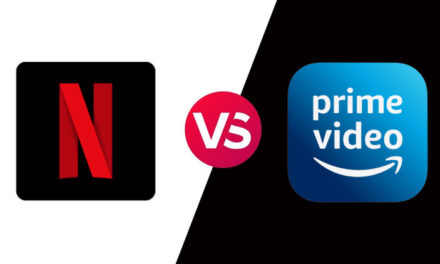What Is Freelancing?
Freelancing is a contract-based profession where instead of being recruited in an organization, the person uses his skills and experience to provide services to a number of clients. Read the complete article with PK Halder and explore more information on how to become a freelancer.

Definition
In simple terms, freelancing is when you use your skills, education, and experience to work with multiple clients and take on various assignments without committing to a single employer. The number of assignments or tasks that you can take just boils down to your ability to deliver on them as asked from them.
Work requirements
Freelancing usually involves jobs that allow you to work-from-home situations. But don’t associate freelancing as the same as having a work-from-home job. Freelancing doesn’t always mean that you’ll work from home. You might have to work at your client’s office too depending upon the type of work and the client’s requirements. A work from home job involves a contract between you and a single employer who gives you a salary while freelancing doesn’t.
Who is a Freelancer?
A freelancer or freelance worker is a self-employed person who earns money by providing services to multiple clients. These services relate to the person’s skills and are not necessarily provided to just businesses. Freelancers either use third-party platforms like Fiverr, 99designs, etc. to get business or use their network to get more business and provide services to their clients directly.

Well, when 11 percent of the working adult population in the United States is working primarily as full-time freelancers, there must be something good about this industry.
Freelancing as a Career
The rise of freelancers has resulted in the development of a new concept – the gig economy. In the gig economy, a person, instead of working for a single employer full-time and getting a fixed salary in return, works for multiple clients at his own terms and at a price he thinks his work deserves.
Full-time workers
Full-time traditional workers spend nearly an additional full month each year behind the keyboard (or wherever they work). All this along with advantages like freedom to work from anywhere at a time of your choice, being your own boss, keeping all the profits, and a lower cost of operating surely attracts a lot of people to take freelancing as careers.
Long-term benefits
It is deeply rooted in our minds to look for a guarantee. A regular job provides us with a guarantee of a profession that pays at the specified time. You get a routine to follow. And this job also provides with guaranteed perks such as insurance, retirement benefits, provident fund, increments and salary hikes for performing well.
No guarantee working lifestyle
When you opt for freelancing, you lose the guarantee of any of this. There’s no surety that you’ll get recurring clients. No surety that you’ll be able to sustain this lifestyle till retirement, and even no guarantee that your income will ever increase. Moreover, you get to handle your tax deductions, insurance, and other finances yourself.
There are also other cons to freelancing such as –
Work-life balance
If you don’t know how to separate personal life from work, freelancing becomes tougher than a regular nine to five job.
No benefits
Freelancers are in charge of their own holidays, sick days, vacations and must be good financial and time-management planners.
Difficult Clients
You may find some clients who are extremely difficult to manage. They may fail in giving the right instructions and information for completing the job or may be inaccessible to clear any doubts. This can be frustrating and might result in wasting your time.
Every profession has pros and cons
There are always pros and cons to every profession and it’s up to you to balance it properly for a healthy footing. If you think freelancing could be beneficial for you and the cons don’t matter much. Read on to find out how you can become a freelancer.
How To Become A Freelancer?
Becoming a freelancer is just as easy as ordering something over the Internet. You visit sites that offer freelance jobs and tasks and take them on. This is a wonderful way of starting out and getting your name out there.
Here are a few sites that you can try for freelancing jobs:
Fiverr
the world’s largest marketplace to look for freelance jobs. Just create an account post what you can do, add few links and you’re done.
99Designs
A perfect place to find freelancing jobs if you’re a designer.
Upwork
Upwork is a more professional looking freelance marketplace where you’ll find more business clients.
Freelancer.com
Freelancer.com is among the oldest freelance job marketplace which you can choose in your initial year when you have little or no freelance experience. But before heading to these freelance websites, you need to set up a freelance brand for yourself.
Follow these steps for the same –
- Decide what services you’ll offer.
- Determine your target market.
- Find the platforms (freelancing websites) you’ll be serving on. Choose a uniform username on all of them. It helps you build your brand identity.
- Decide your rates.
- Create an online portfolio on your niche-specific portfolio platforms; GitHub for developers, Be hance for designers, etc. We also suggest you create a personal portfolio website to showcase your skills and talent.
- Market your services
- market on social media, offer something for free or at a very less cost (helps in getting more traction), ask for referrals, and use email marketing.
Part time venture
We don’t suggest you leave your existing source of income and jump into freelancing per se. Try it as a part-time venture to see how it works out for you in the initial months.
-
Take Care Of Your Finances
While in a job, most of the “money stuff” is taken care of by the company you work for. You get a regular pay check without having to ask; your taxes are deducted automatically, and insurance is likely also taken care of by your employer.
Things are different when you’re on your own and you’d have to take care of the following by yourself:
Getting your Pay check
This is considered to be the trickiest part to manage, be it for the freelancing veterans or the newbies. Negotiating and communicating properly with your client to get them to pay for your service at the specified time proves to be much of a challenge. Take care of this properly and you are well set to do great in the freelance field. Check out this guide on negotiating like a pro to help you gain more tips and insight.
Taxes
You need to handle your personal and professional tax complexities yourself.
Insurance and retirement benefits
You need to look for the best insurance policy and plan for your retirement yourself. What it all comes down to is that being a freelancer and working in the gig economy means taking a lot of responsibility for your own finances, whether that’s negotiating your pay, finding insurance, or paying taxes. But if you love the freedom, flexibility, and earning potential that comes with being independent, then freelancing is an ideal situation.
Reference
https://www.feedough.com/what-is-freelancing-how-to-become-a-freelancer-the-actionable-guide/












I have read your article carefully and I agree with you very much. This has provided a great help for my thesis writing, and I will seriously improve it. However, I don’t know much about a certain place. Can you help me?
Can you be more specific about the content of your article? After reading it, I still have some doubts. Hope you can help me.